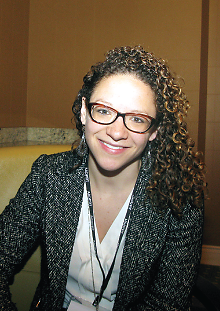An agitated, psychotic patient in a medical-surgical ward demands to be released immediately from the hospital against medical advice. The psychiatry resident summoned to assess the patient informs him that he can’t be released for 72 hours after signing a discharge form; the patient becomes extremely angry, verbally abuses the resident, and makes threatening gestures signaling a potential assault.
For psychiatry trainees, and for medical-surgical interns as well, the scenario can be the proverbial baptism by fire.
Assaults or threats-to-assault are not uncommon. A report in Academic Medicine (January 1, 2012) surveyed 519 psychiatry residents in 13 psychiatry training programs across the United States about residents’ experiences of threats and assaults by patients during their training. Of 204 residents who responded, 175 (86 percent) said they had been threatened, 145 reported being physically intimidated, and 51 (25 percent) said they had been physically assaulted. Most of the incidents occurred in inpatient settings.
Two training programs, at Massachusetts General Hospital/McLean Hospital Adult Psychiatry Residency Program and the Hennepin-Regions Hospital Psychiatry Training Program in Minneapolis-St. Paul, Minn., have launched novel simulation programs for their trainees that provide firsthand experience of a threatening situation, equipping residents with skills needed to deescalate a potentially violent encounter and knowledge about the resources available in the hospital to keep the patient, themselves, and staff safe.
The programs were presented in poster sessions at this year’s meeting of the American Association of Directors of Psychiatric Residency Training (AADPRT) in Orlando in March.
“This subject is enormously important for resident safety and quality patient care,” said Heather Vestal, M.D., an associate director of psychiatry training at Mass General/McLean, in an interview with Psychiatric News. “Our motivation for developing the simulation training grew out of the recognition that when our residents begin taking call in their second year, they may not have had experience managing agitated patients. When called to respond to a psychiatric emergency, we want residents to feel well equipped to safely assess, deescalate, and provide appropriate treatment to an agitated patient.
“Our previous method of training was didactic lectures,” she said. “There is certainly utility in providing lecture-based knowledge, but when residents are in that high-adrenaline situation for the first time, they may not be able to access that knowledge.”
Vestal and colleagues developed a randomized, controlled trial with 22 psychiatry interns to assess the effectiveness of simulation-based training for the management of agitated patients. All interns received a lecture on agitation, after which they completed a self-report form of their knowledge on the subject and a clinical case vignette test.
Then half of the interns received the simulation-based training, during which they were required to assess and manage a patient (as played by an actor) becoming progressively agitated. The other interns, in the control group, received a sham simulation that did not involve agitation or threats (rather, the assessment of a patient with an unwitnessed fall). All interns completed a second self-report form and clinical case vignette as a posttest of their knowledge.
A week later, all 22 interns were given a second assessment simulation experience that involved exposure to an agitated or potentially violent patient. Two blinded raters scored each intern on his or her skill in the following areas: obtaining information from the nurse, maintaining personal safety, assessing the patient, offering medications, when to call security, when to order restraint, response to escalation, and attitude and empathy.
The interns also rated themselves on perceived confidence in dealing with the exposure to agitation on a five-point rating scale from “completely confident” (5) to “not at all confident” (1).
The interns who underwent the simulation-based training reported a subjective increase in their overall ability to manage agitated patients and use verbal deescalation techniques compared with the control group.
“We think this is an improvement over teaching as usual,” she said. “In simulation we ask interns to try to get into the moment and suspend disbelief, and a lot of them indicated they didn’t expect the situation to feel so real. But when the actor starts really pacing and yelling and getting in their face, they can’t help but respond to that physiologically.”
Simulation Evokes Real Responses
Similarly, Valentina Elena Cimolai, M.D., a third-year resident at the Hennepin-Regions Psychiatry Training Program, developed a simulation training with the HealthPartners Clinical Simulation Center at Regions Hospital in St. Paul.
The training involved a one-hour lecture on antecedents of violence, evaluation of violent patients and use of deescalation techniques, and one-hour clinical simulations. Simulated scenarios involved the following: an angry patient with substance abuse disorder and borderline personality disorder seeking early Xanax refills in an outpatient setting; a suicidal woman asking to leave the mental health unit against medical advice and threatening to harm herself with a cut spoon; and an unpredictable, psychotic, and intoxicated patient (using alcohol supplied by a visitor) on the medical-surgical unit.
In the last scenario, the resident is expected to politely attempt to take the alcohol from the patient and ask the visitor to leave. The patient becomes visibly angry and attacks the resident, who is expected to protect himself and activate the PERT (Psychiatric Emergency Response Team) for help. The resident is also expected to work with team members and order appropriate pharmacologic treatment if necessary.
A debriefing session is then held centered around the resident’s emotional response to the attack, how to report an assault, and pharmacologic options.
Significant Improvement Seen
Cimolai said pre- and post-course self-rated surveys of residents indicated marked improvement in the comfort level of handling an acute crisis situation, ability to recognize phases of escalation, familiarity with self-defense techniques, and familiarity with verbal deescalation skills.
Scott Oakman, M.D., training director at Hennepin, told Psychiatric News there are several discrete skills the training seeks to impart. “We want trainees to identify when a patient is escalating and know what the next steps are when they are exposed to a situation that is getting out of control,” he said. “We want them to know about resources in the hospital, who they should call for help, when to call for help—and to call for help earlier rather than later.”
Oakman and Cimolai said they expect to expand the training and to incorporate it into resident orientation. “We are lucky to have resources at the Clinical Simulation Center, and a lot of training programs will have to start from scratch,” he said. “But this is a subject of interest to all trainees and training program directors. And we want to get this training to medical-surgical residents who often have to confront these situations.” ■
“Survey of Threats and Assaults on Psychiatric Residents by Patients” can be accessed
here.

